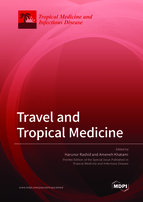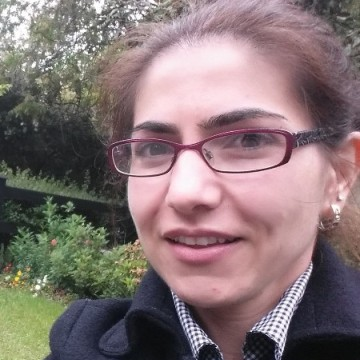Travel and Tropical Medicine
A special issue of Tropical Medicine and Infectious Disease (ISSN 2414-6366). This special issue belongs to the section "Travel Medicine".
Deadline for manuscript submissions: closed (30 September 2020) | Viewed by 50970
Special Issue Editors
2. Discipline of Child and Adolescent Health, The University of Sydney, Camperdown, NSW 2006, Australia
Interests: travel vaccine; vaccine-preventable infectious diseases; vaccination evaluation; vaccine prioritisation
Special Issues, Collections and Topics in MDPI journals
Special Issue Information
Dear Colleagues,
Gone are the days when travel was enjoyed only by the privileged. Globalisation and massive expansion of transport technology and systems have enabled even the less privileged section of society to travel far and wide, in search of a better livelihood, for recreation, to advance knowledge, or for spiritual need. Many people in various parts of the world are forced to travel as a consequence of conflict or natural disasters. Irrespective of the purpose, travel is often associated with detrimental health effects: communicable, non-communicable, psychological, and environmental hazards are all recognised threats of travel. On the other hand, increased international trade and travel have opened up new vistas for preventive medicine research. There is more to explore, and what is already known should be disseminated.
This Special Issue will provide an overview of common health issues and emerging travel-related diseases, with emphasis on the prevention and control of these problems for travellers or expatriates to tropical or resource-poor settings, as well as for attendees of mass-gathering events. Original research works and systematic or integrative reviews on the medical aspects of pre-travel preparation, travellers’ diarrhoea, vaccinations, prevention of vector-borne diseases, refugee health, disaster preparedness, and travel health issues in humanitarian emergencies will be included. Some case reports or case series of exotic diseases may also be considered.
Dr. Harunor Rashid
Dr. Ameneh Khatami
Guest Editors
Manuscript Submission Information
Manuscripts should be submitted online at www.mdpi.com by registering and logging in to this website. Once you are registered, click here to go to the submission form. Manuscripts can be submitted until the deadline. All submissions that pass pre-check are peer-reviewed. Accepted papers will be published continuously in the journal (as soon as accepted) and will be listed together on the special issue website. Research articles, review articles as well as short communications are invited. For planned papers, a title and short abstract (about 100 words) can be sent to the Editorial Office for announcement on this website.
Submitted manuscripts should not have been published previously, nor be under consideration for publication elsewhere (except conference proceedings papers). All manuscripts are thoroughly refereed through a single-blind peer-review process. A guide for authors and other relevant information for submission of manuscripts is available on the Instructions for Authors page. Tropical Medicine and Infectious Disease is an international peer-reviewed open access monthly journal published by MDPI.
Please visit the Instructions for Authors page before submitting a manuscript. The Article Processing Charge (APC) for publication in this open access journal is 2700 CHF (Swiss Francs). Submitted papers should be well formatted and use good English. Authors may use MDPI's English editing service prior to publication or during author revisions.
Keywords
- travel medicine
- tropical medicine
- vaccine-preventable diseases
- emerging and re-emerging infections
- vector-borne diseases
- mass-gathering medicine
- refugee health
- disaster preparedness
- humanitarian emergencies
- pre-travel advice








